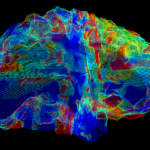A team of Japanese and English researchers found that music training does not yield beneficial effects for children’s cognitive skills or academic achievement. The findings appeared in Memory & Cognition.
The new findings were determined by analyzing data between 1986 through 2019 of more than 6,000 children.
From the findings: “Music training has repeatedly been claimed to positively impact children’s cognitive skills and academic achievement (literacy and mathematics),” the findings state.
“This claim relies on the assumption that engaging in intellectually demanding activities fosters particular domain-general cognitive skills, or even general intelligence.”
Researchers concluded the following: “Music training is ineffective regardless of the type of outcome measure (e.g., verbal, non-verbal, speed-related, etc.), participants’ age, and duration of training.”
“We conclude that researchers’ optimism about the benefits of music training is empirically unjustified and stems from misinterpretation of the empirical data and, possibly, confirmation bias.”
The study, titled Cognitive and academic benefits of music training with children: A multilevel meta-analysis, was authored by Giovanni Sala and Fernand Gobet.


